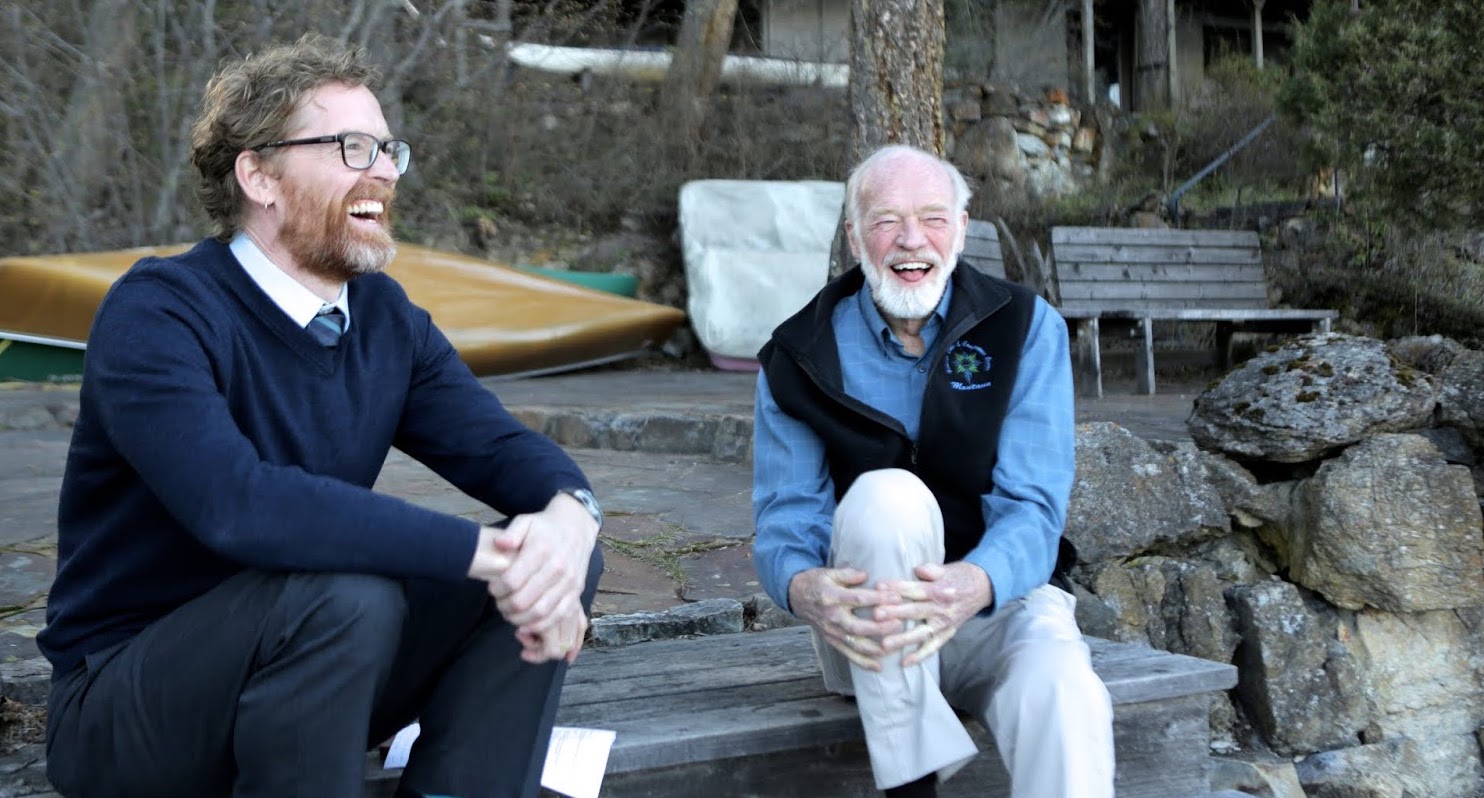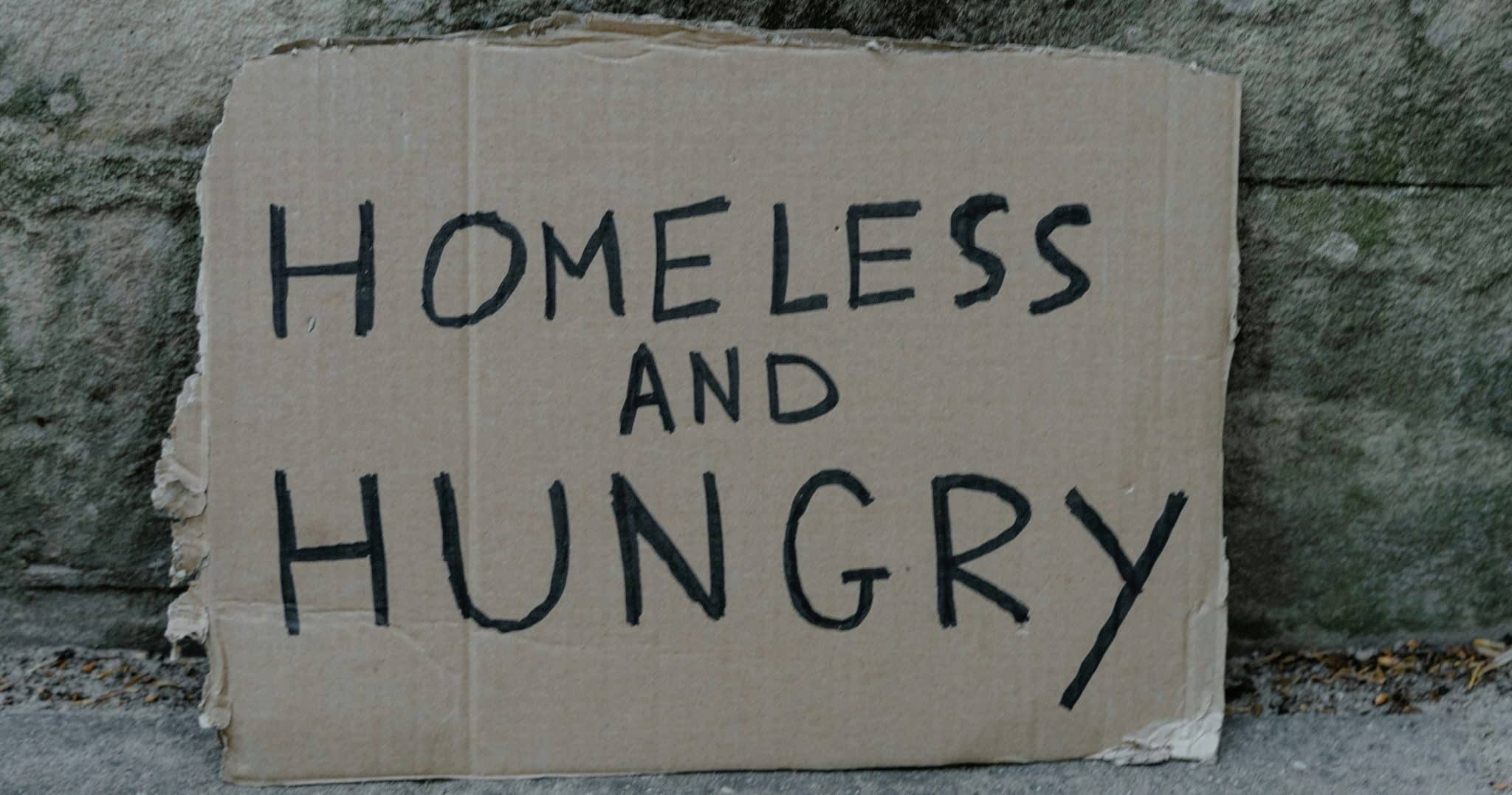Eugene Peterson’s son reflects on his father’s passing
This Good Friday-Resurrection Sunday, Salt&Light brings you tales of faith, hope & new beginnings.
Eric Eugene Peterson // March 31, 2021, 4:52 pm

Before the late author and theologian Eugene Peterson passed away, his remaining days were accompanied by an uncommon joy as he delighted in the visits with his family and friends, writes Eugene Peterson's son, Eric. "As a result, I do now, more than ever, believe in the resurrection of the body. His death, like his life, was a compelling witness to the resurrection to which he is now a full heir." Photo by David Taylor on http://artspastor.blogspot.com/
“I believe in … the resurrection of the body.”
This credal affirmation, a cornerstone of Christian orthodoxy, cleverly couples two central pillars of our faith: Incarnation and resurrection.
The flesh with which Jesus arrived on Christmas Day did not vanish on Ascension Day; he did not morph from a physical into a spiritual being once he was done with this world.
Jesus’ body
From the beginning, the body of Christ has been intimately involved in all the details of God’s creation, God’s revelation, God’s salvation.
Manifesting the bodily presence of Jesus, the Christian life is pursued in the ordinary details of the here and now.
Even now, that body sits at the right hand of the Father, reigning, praying, preparing. He’s as physically alive and well today as he was at his Bethlehem nativity.
Since the life of faith is nothing if it is not embodied, it must be lived – lived in the flesh. While Jesus’ body has been, for now, returned to heaven, the body of Christ remains incarnated through the church.
Manifesting the bodily presence of Jesus, the Christian life is pursued in the ordinary details of the here and now grounded in planet earth. The Holy Spirit (which is the Spirit of Christ) dwells in the baptised, creating a mysterious convergence of all that is past, present, and future, a reality which gets celebrated in the liturgy of the Eucharist: “Christ has died, Christ is risen, Christ will come again.”
For now, He lives in people like you and me.
Witness of life and death
Living the incarnation and living the resurrection are two sides of the same discipleship coin; it is the union of our mortality and our immortality. It leaves nothing out.
“In the immediate wake of death, we joined Eugene in living the resurrection.”
Few gifts in my life compare to that of being with my dad during his dying days.
On the afternoon when he was first placed under the care of a hospice, I summarised for him the reality of his condition by telling him three things:
- You are deeply loved.
- We are going to take good care of you.
- The remainder of your life is likely going to be measured in days and weeks, no longer months and years.
When I asked him how he felt about the prospect of dying, after his customary thoughtful pause, he said: “I feel good about that.”
And indeed, he did.
His remaining days were accompanied by an uncommon joy as he delighted in the visits with his family and friends, as he enjoyed a last supper of butter pecan ice cream, and as he interacted with people (angels?) on the other side of the threshold between earth and heaven who were, I am persuaded, preparing to welcome him into paradise.
As a result, I do now, more than ever, believe in the resurrection of the body. His death, like his life, was a compelling witness to the resurrection to which he is now a full heir.
From graves, resurrection
While Eugene’s funeral was open to the public, the brief graveside service that followed was an intimate, family-only affair.
As we gathered around his casket for our final farewell, and just before offering the “earth to earth, ashes to ashes, dust to dust” commendation, it seemed fitting that Eugene’s voice should be heard one last time.
“We practice our death by giving up our will to live on our own terms.”
On a grassy hillside in the Conrad Memorial Cemetery of Montana, I read these words from his memoir, one of the last books he wrote:
“Resurrection does not have to do exclusively with what happens after we are buried or cremated. It does have to do with that, but first of all it has to do with the way we live right now. But as Karl Barth, quoting Nietzsche, pithily reminds us: “Only where graves are is there resurrection.” We practice our death by giving up our will to live on our own terms. Only in that relinquishment or renunciation are we able to practice resurrection.”
We left the cemetery and joined several hundred friends for a reception nearby.
We told stories. We shared food and drink. We straddled the emotional line between crushing grief and grateful wonder – which is to say that in the immediate wake of death, we joined Eugene in living the resurrection.
Some content taken from the foreword of Living the Resurrection by Eugene H Peterson. Foreword by Eric E Peterson. Book copyright © 2006. Foreword © 2020. Used by permission of NavPress, represented by Tyndale House Publishers. All rights reserved.
We are an independent, non-profit organisation that relies on the generosity of our readers, such as yourself, to continue serving the kingdom. Every dollar donated goes directly back into our editorial coverage.
Would you consider partnering with us in our kingdom work by supporting us financially, either as a one-off donation, or a recurring pledge?
Support Salt&Light



